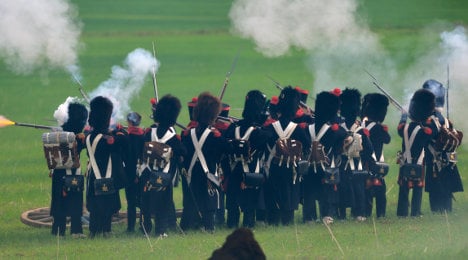“Long live the Emperor” is not a cry you hear in France these days, but it echoed around the countryside not far from Paris on Sunday.
The calls were not from opponents of beleaguered French President François Hollande, demanding a return to days of former glories but came from a few hundred history enthusiasts taking part in a re-enactment of a Napoleonic battle.
The fields near Saint-Jean-les-Deux-Jumeaux were transformed into the scene of a battle from the campaign in France in 1814.
The re-enactment was of a battle, one of the last of the 1814 campaign, that saw 650 French soldiers come up against 35,000 allied soldiers to try to prevent them from advancing on Paris.
Although on Sunday organisers mustered around 300 residents, history students and role play enthusiasts to reconstruct the battle.
With firecrackers exploding in the fields and soldiers armed with bayonets the crowd of around 1,000 were given an insight into warfare 200 years ago, until that is the wind turned and blew the smoke in their direction.

(A man dressed as French Emperor Napoleon Bonaparte checks on his men dressed as members of the Old Guard ("grognards" in French) before the reenactment of a battle)
(The main photo shows People dressed as members of French Emperor Napoleon Bonaparte's Old Guard ("grognards" in French) who attend the reenactment of a battle.)



 Please whitelist us to continue reading.
Please whitelist us to continue reading.
Member comments